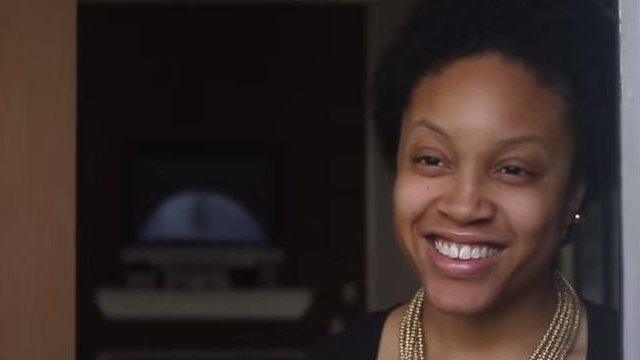Black natural hair: Why women are returning to their roots
- Published
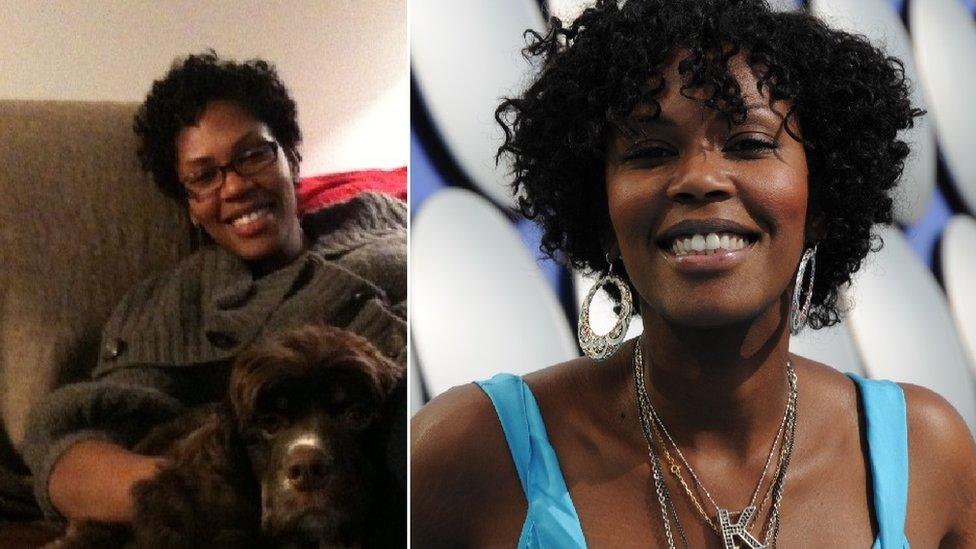
Kadian Pow started with a Teeny Weeny Afro when she began growing her natural curls
The natural hair movement embraces black hair that is free from extensions, wigs or straightening chemicals. But why is natural hair seen as political and what kind of support does the movement have in Britain?
When Kadian Pow was visiting London from the US in 2009 she was inspired to have her relaxed hair cut off and grow her natural curls after seeing a Matalan advert featuring a black model sporting an afro.
She says: "I was jealous of a model on a billboard. But I quickly snapped out of it, realising my own hair could do that.
"By the time I returned to the States, I had resolved to stop relaxing the roots of my sleek bob. Four months before moving permanently to the UK in April 2010, I had my hairdresser cut off the relaxed hair.
"I was left with a short crop of curls, what we in the natural hair community call a teeny weeny afro (TWA)."
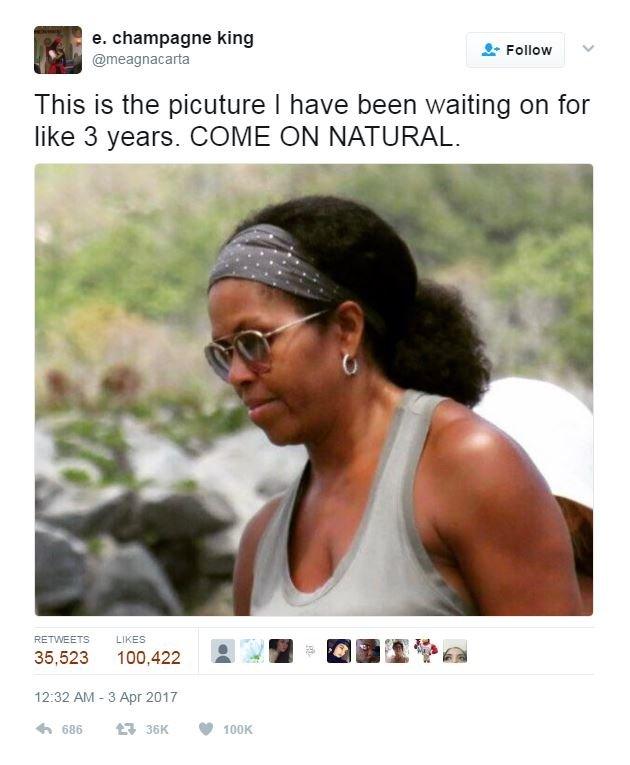
While she settled into her new life in Britain, where she was a PhD researcher and assistant lecturer in sociology at Birmingham City University, she began looking online for how to take care of her "growing mane".
She says: "No-one ever taught me to properly nourish the kinky hair that naturally grows out of my scalp.
"I was taught only to tame and manipulate it, as if it were some scary beast. And, to be honest, black women are often made to feel that way in professional and casual environments that subscribe to rigid European beauty ideals."
Her experience is echoed by other black women, who have reported being told to straighten their hair for work, external in the UK, and in the US where natural hair advocates took on the army.
Presumably even someone as prominent as Michelle Obama felt the pressure to sculpt and straighten - last month a rare photograph emerged of her wearing her hair au naturel, in sharp contrast to the years she spent in the White House.
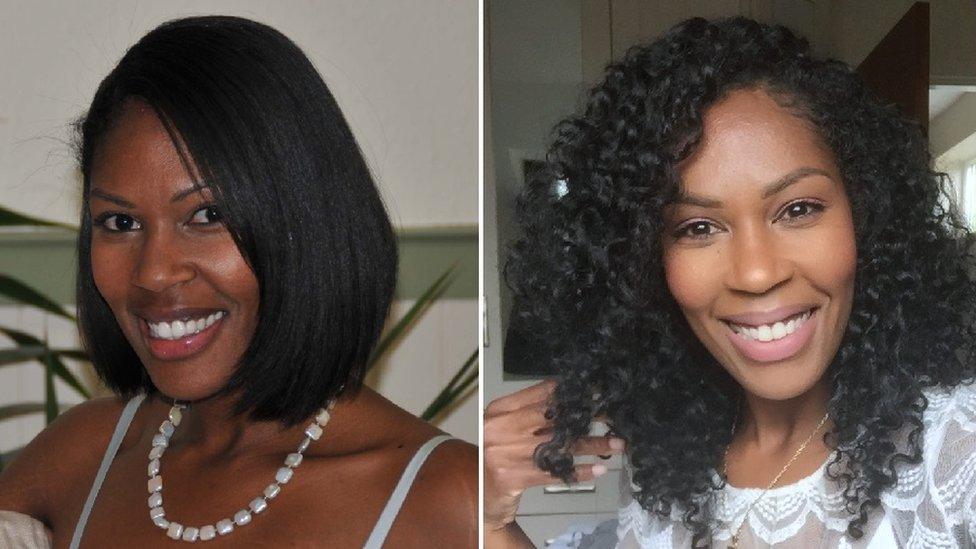
Kadian Pow had her relaxed hair cut off to go natural
Khembé Clarke has been styling natural hair since the age of 15. Now 56, she organises the Return to your Roots, external natural hair event in Birmingham.
She says she started with a small-scale event in 2008 and since then there has been a "real appetite" for going natural.
When she opened her own salon in 2005 she said hairdressers offering to do natural hair were rare, but they became more in demand as women moved away from the weaves and perming chemicals that can lead to hair loss.
She says: "Weaving places tension on the hairline, which starts to recede; our hair is quite fragile and there was a movement in the States away from perms and weaves and towards going natural.
"There was also a drive towards heritage, identity and a reawakening that our hair is part of who we are.
"There was a political resistance: why change to be accepted or considered professional?"
Children learnt how to style their own natural hair at a natural hair event
She says that while the US is "way ahead" in terms of the level of support for natural hair, the movement has gained a lot of support in the UK, particularly among young women.
"It's changing slowly, it comes from us not backing down. This is our hair, this is how it grows," she says.
"There has been an unconscious bias and a lack of understanding for how our hair is, with schools thinking perms are standard without realising the regime required to achieve that.
"Professionally too, a lot of our women are concerned - they already feel discriminated against for being black, [they worry] can I go to work and be accepted [with natural hair]?"
Indeed hair care product company SheaMoisture recently faced a backlash, external over its advertising campaign which was accused of making black women invisible.
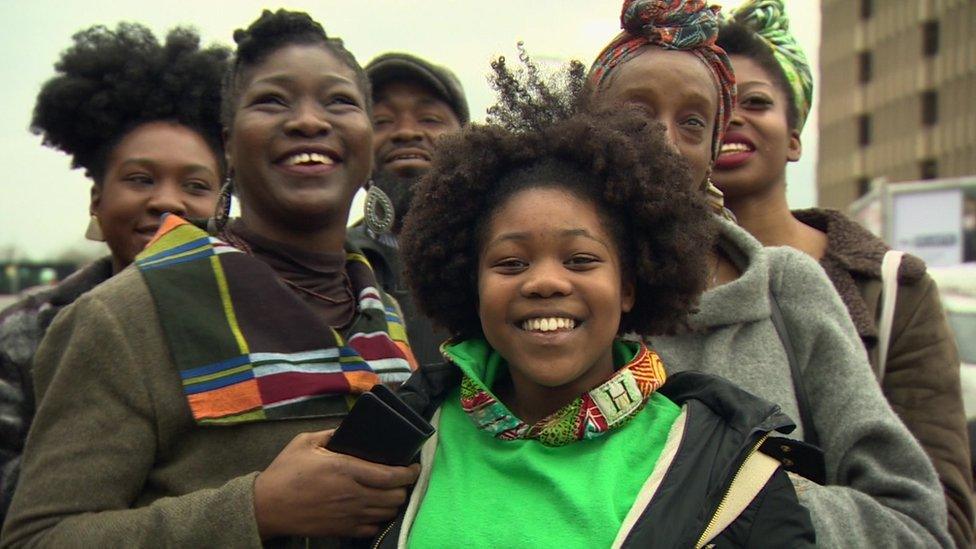
Earlier this month a mother from London organised a billboard featuring natural hair to inspire girls like her daughter
The natural hair movement is huge on social media; in the UK vloggers have created hundreds of YouTube tutorials about caring for and styling natural hair.
Shannon Fitzsimmons, from Mitcham, London, who blogs as UK Curly Girl, external, says women regularly contact her with questions about natural hair.
She says: "The most popular questions people have about going natural are; 'But I don't know if I will like my natural hair?' 'Where can I get my natural hair cut?' and 'What products should I use to stop my hair from becoming dry?'"
She has written a book, titled Get My Curls Back!, which is all about her natural hair journey. It includes a small dictionary of the phrases that have sprung up around natural hair.
Phrases include:
Co-wash - Washing your hair using conditioner only, external, to avoid the harsh chemicals in shampoo and to retain moisture
Pineapple - The style of wearing your hair up in a loose ponytail, external, which is great for sleeping as it will reduce frizz and keep curls intact
She says when she began blogging in 2014 the natural hair movement in the UK was just beginning to take off but since then it had seen a huge rise in popularity.
"I am so happy to have been a part of the whole scene, seeing some of my favourite natural hair brands going from hard to get a hold of to now being easily accessible to everyone in the UK via mainstream beauty/cosmetic stores."
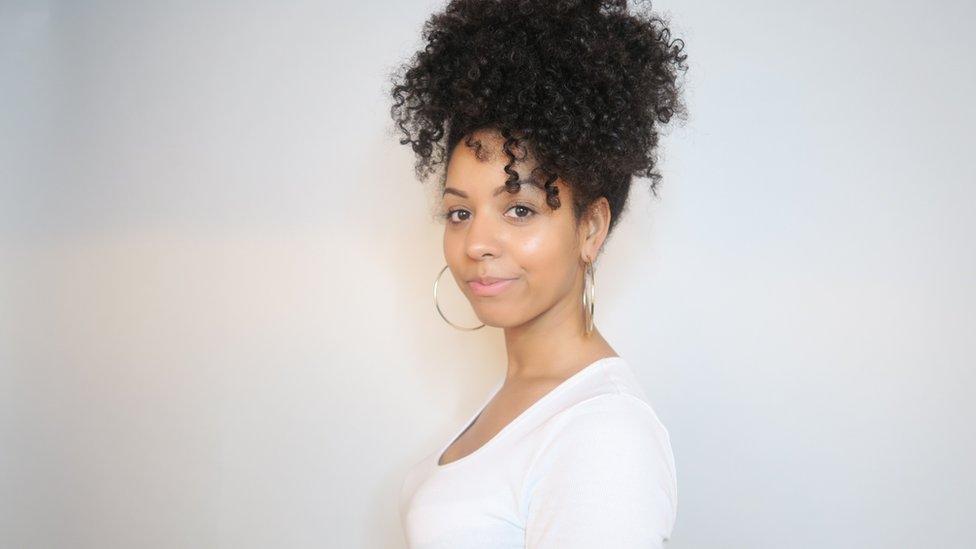
Shannon Fitzsimmons says there are a number of terms around natural hair, including pineapple - a loose ponytail to reduce frizz while you're asleep
Alongside the videos, women use a variety of hashtags around natural hair to share their own experiences, styles and advice on sites like Instagram and Twitter.
According to social media analysis tool Spredfast there were 554,048 posts using the hashtag #naturalhair on Instagram in the first two months of 2017. The posts received 1,646,842 comments and 81,303,058 likes.
On Twitter for the same period 49,745 tweets used the same hashtag.
It was this online community that Kadian Pow turned to, where she found mostly black and mixed-race women sharing their own journeys and knowledge.
And she says while her reasons for wanting to grow natural hair weren't political, she feels calling it a movement is correct.
"'Movement' is a suitable term for the expanding constellation of natural hair care gurus, businesses large and small, hair care videos, fashion and accessories spawned from the ingenuity of black women.
"There is an economic advantage that has come from all this, but most movements are inherently political, as they involve people working together to advance shared ideals.
"The foundation of the natural hair movement is that the hair curling from our heads is innately beautiful and should be free to exist that way."
- Published28 April 2017
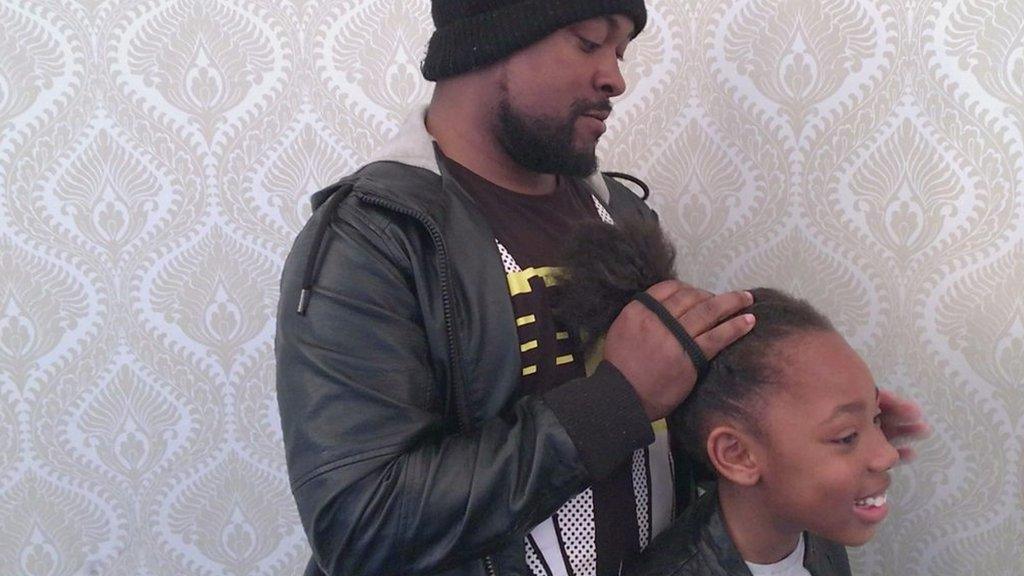
- Published12 March 2017
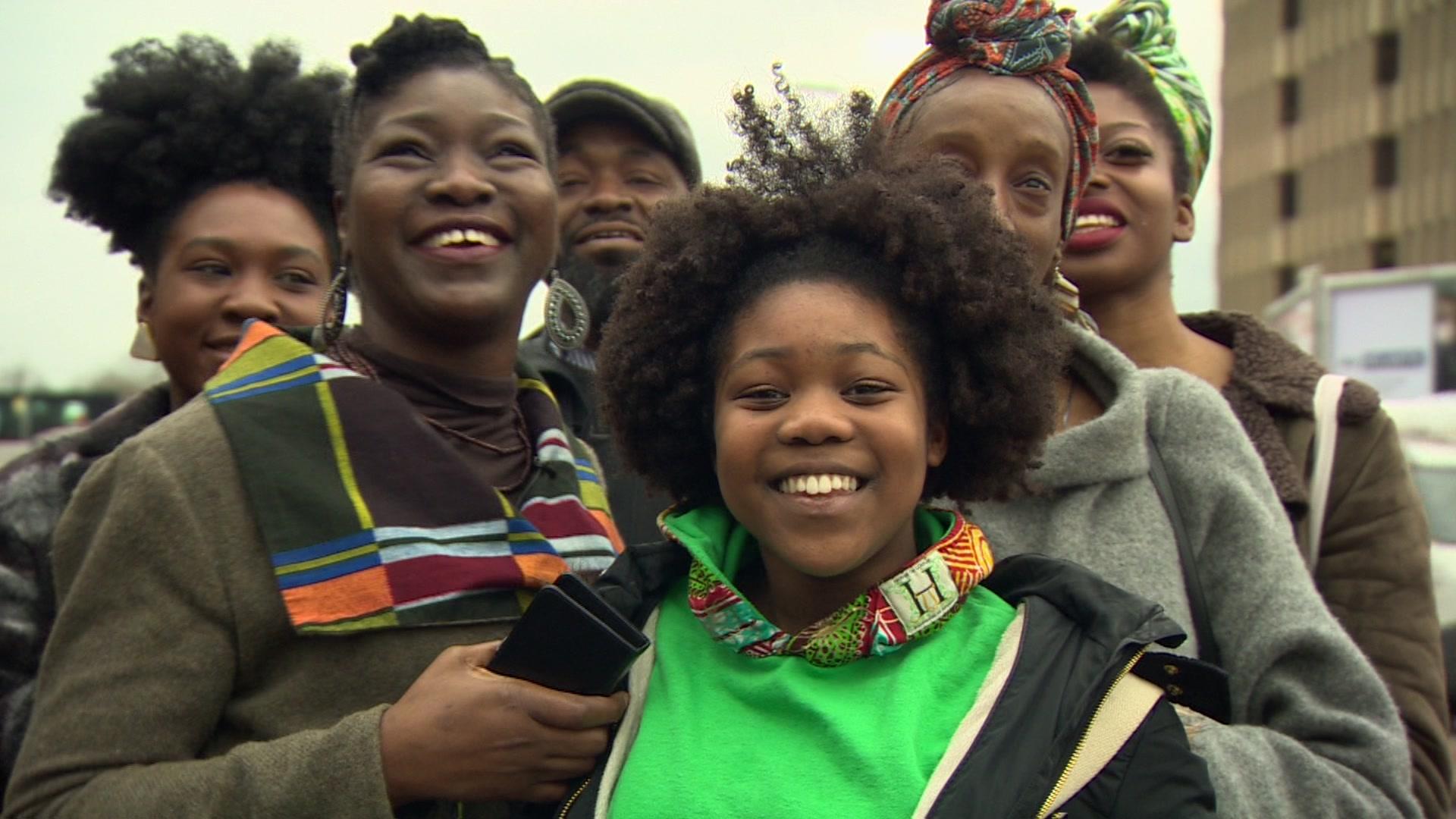
- Published20 March 2017
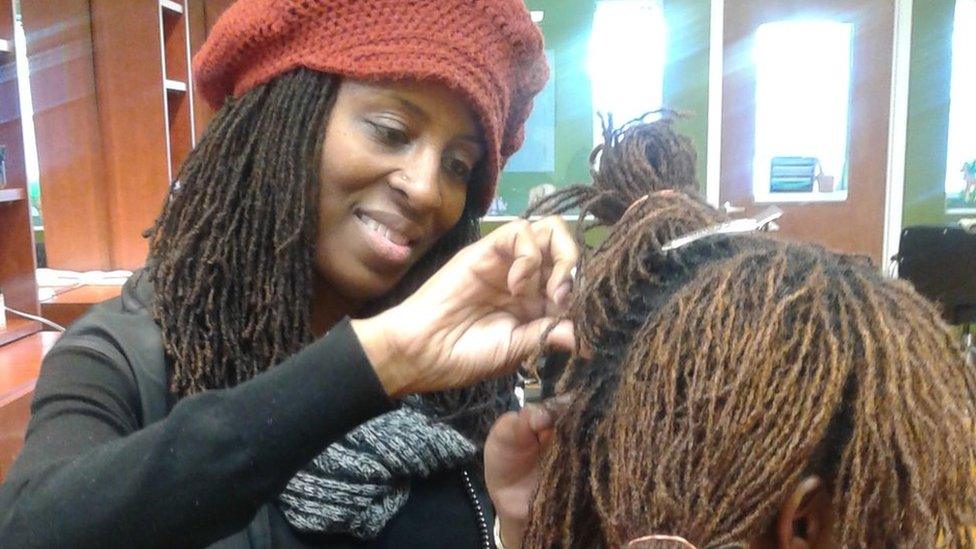
- Published11 December 2014
